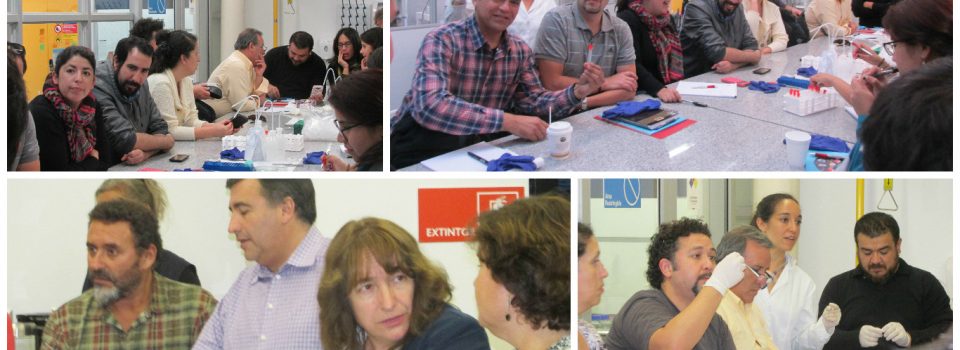IFOP researchers attend to international course of stable isotope
May 6th, 2016Researchers and post graduate students from Spain, Germany, Argentina, Peru, Costa Rica and Chile also participated on the course.
On April 4 and 5, at Universidad Andrés Bello, Viña del Mar premises, “Theoretical-Practical Course of Stable Isotope Analysis: Application in Fishing Biology and Trophic Ecology” was given. The activity was headed by Dr. Sebastián Klarian and the Dr. Francisco Fernandoy, Facultad de Ecologia academics and from Facultad de Ingenieria of same university.
The course objective was to bring researchers of IFOP closer to the technique of stable isotope at studies of tropho dynamics, a technique that is gaining importance in fisheries research. This seeks to complement and improve, under an ecosystem perspective, the different studies carried out by IFOP, moving forward to the target goal of a more sustainable fishing law.
“Stable isotopes are elements that are present in all living organisms. For example, there are isotopes of carbon and nitrogen, which may be related to food intake. For the analysis of fisheries condition, it is important to know what is the food eaten of the exploited resources. The study of isotope is a technique very reliable to 95% …” said Dr. Klarian.
Claudio Bernal, head of Fishing Research Division, said that “this course is of great importance in the work of the Institute, as mandated by the law and the new demands of international scientific forums, the fishing management from an ecosystem perspective, forces us to keep up on the state of the art of science. Therefore, the participation of researchers from different departments of IFOP, such as Fisheries Assessment, Resource Assessment and Direct Assessment, among others, will not only facilitate the connection of the Institute with universities, but also strengthen its position as a benchmark of national research for fisheries management.”
Patricio Galvez, Researcher and project leader of Demersal Fisheries and Deepwater Monitoring of IFOP, said “the understanding of the technique utilized and the contribution of its results to the knowledge of the ecosystem where our fishing resources live is essential to advance towards a sustainable management. This course succeeded in deepens the theoretical principles and the practical requirements of the method, which will allow trained researchers, to broad the discussion in this area, exploring new challenges for fishing research. ”
Eliana Alfaro of ONG Pro-delphinus from Perú, said about the course “It is very helpful and important for us, who study food chains among marine species, since it is very difficult to obtain samples, the course has a theoretical and a practical part which leaves us clearer with the theme”
